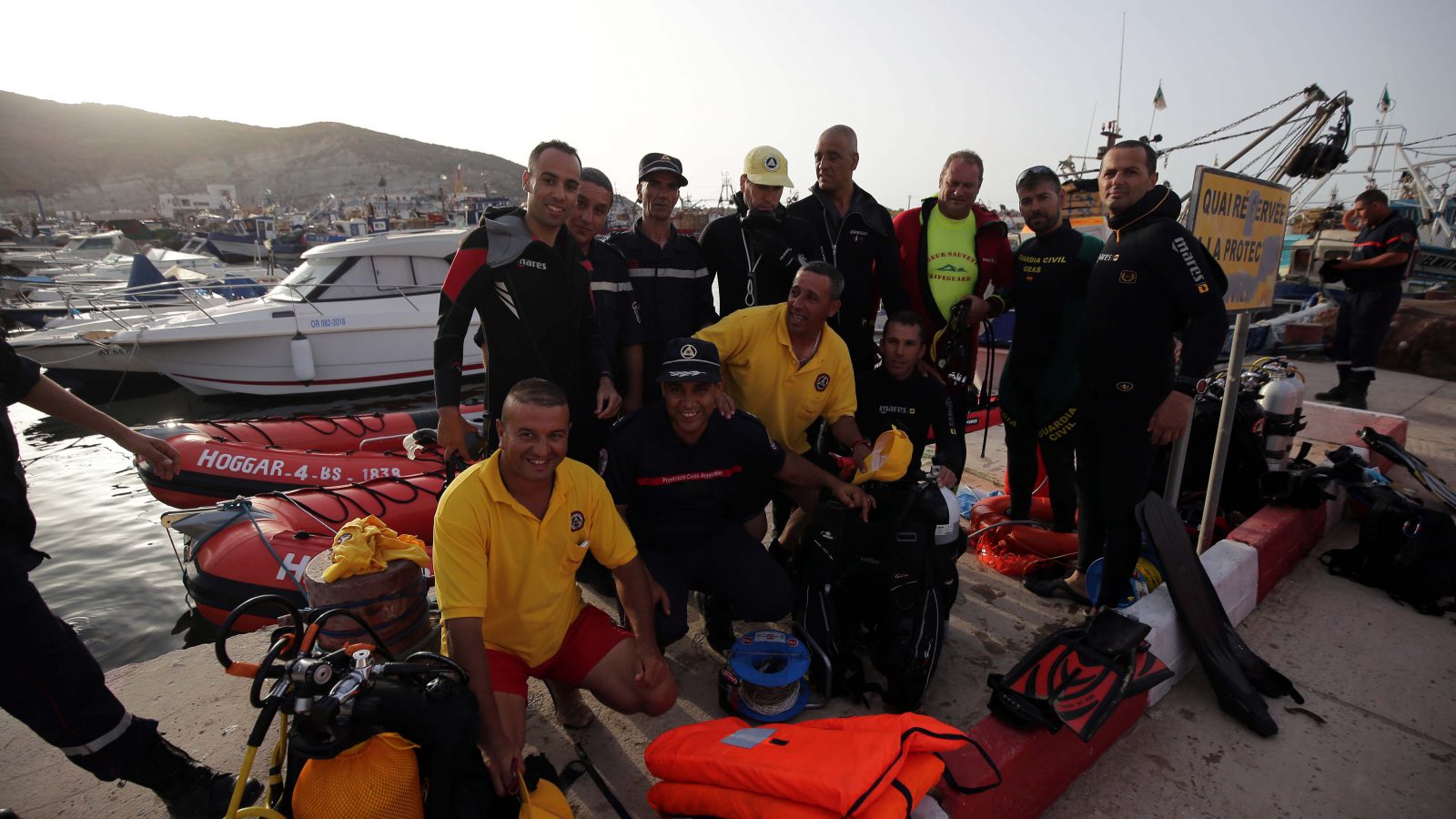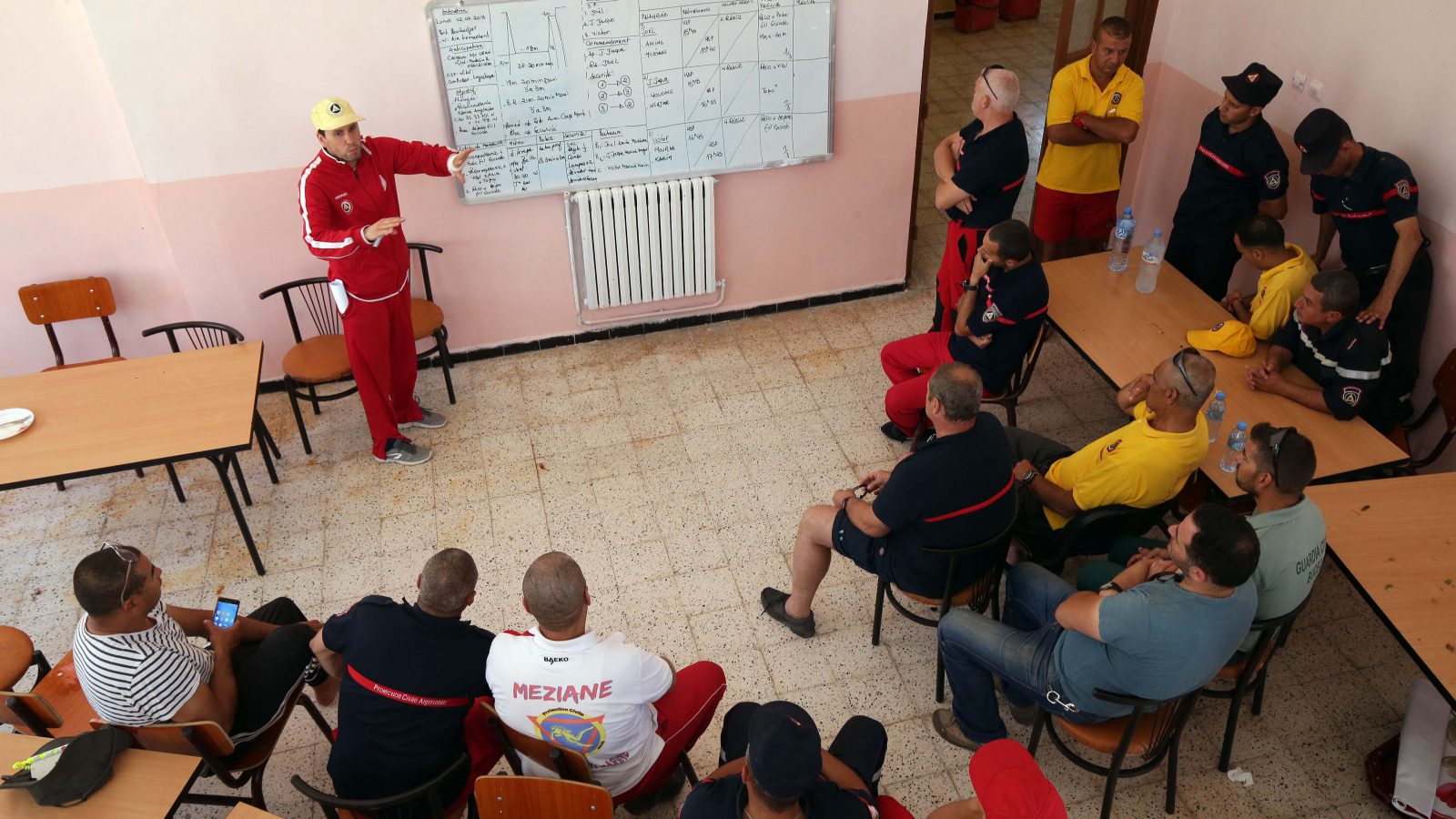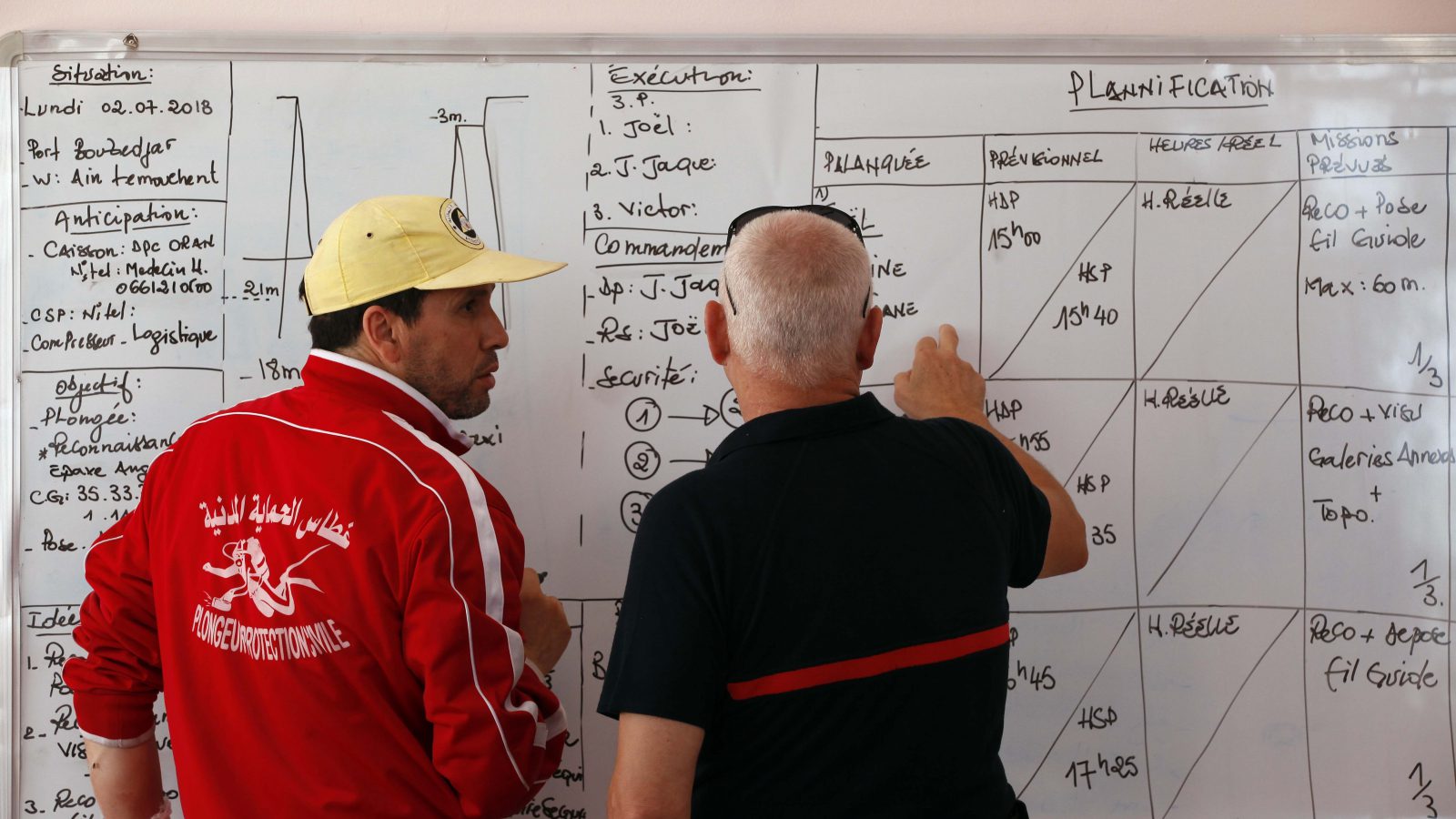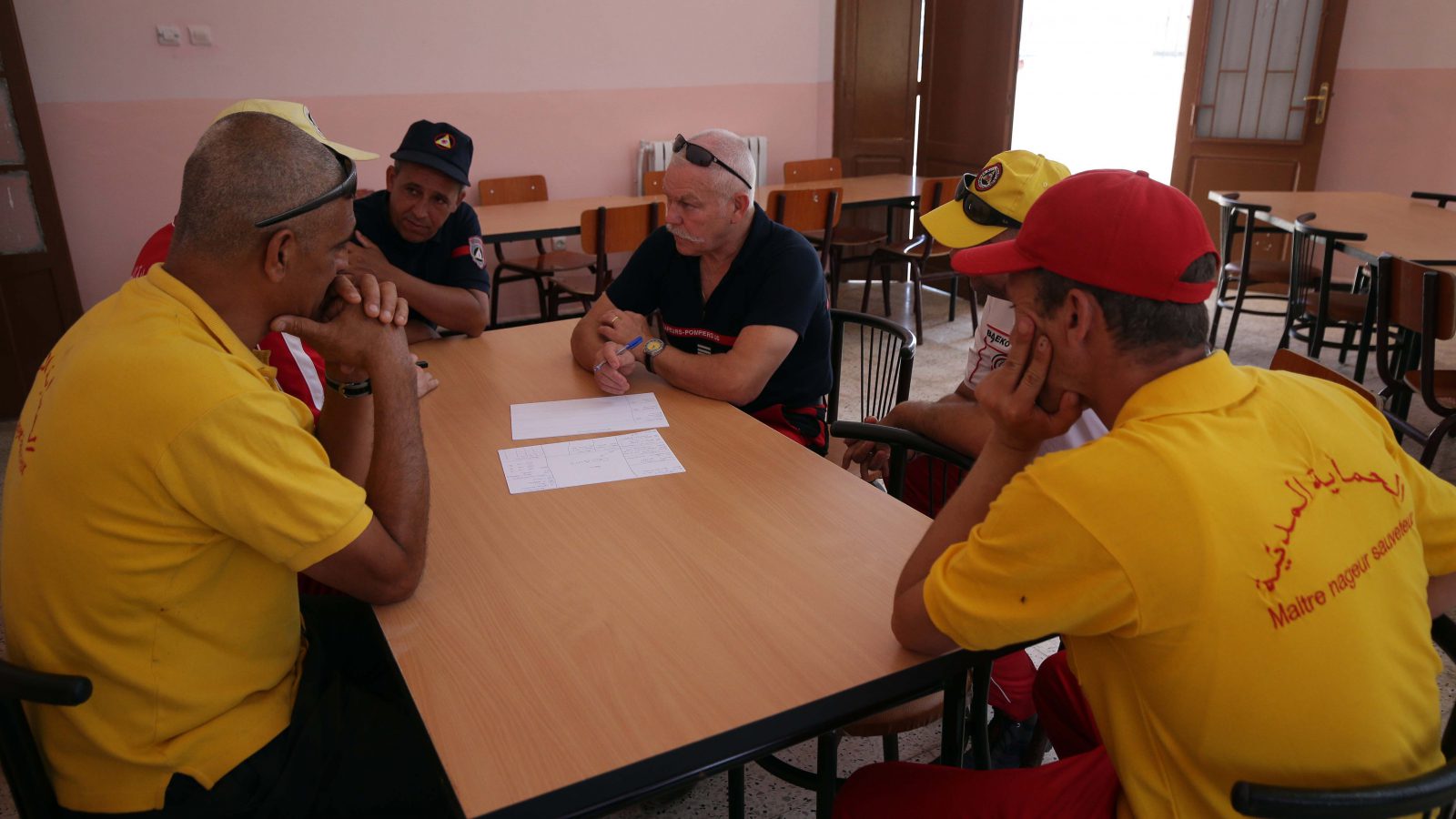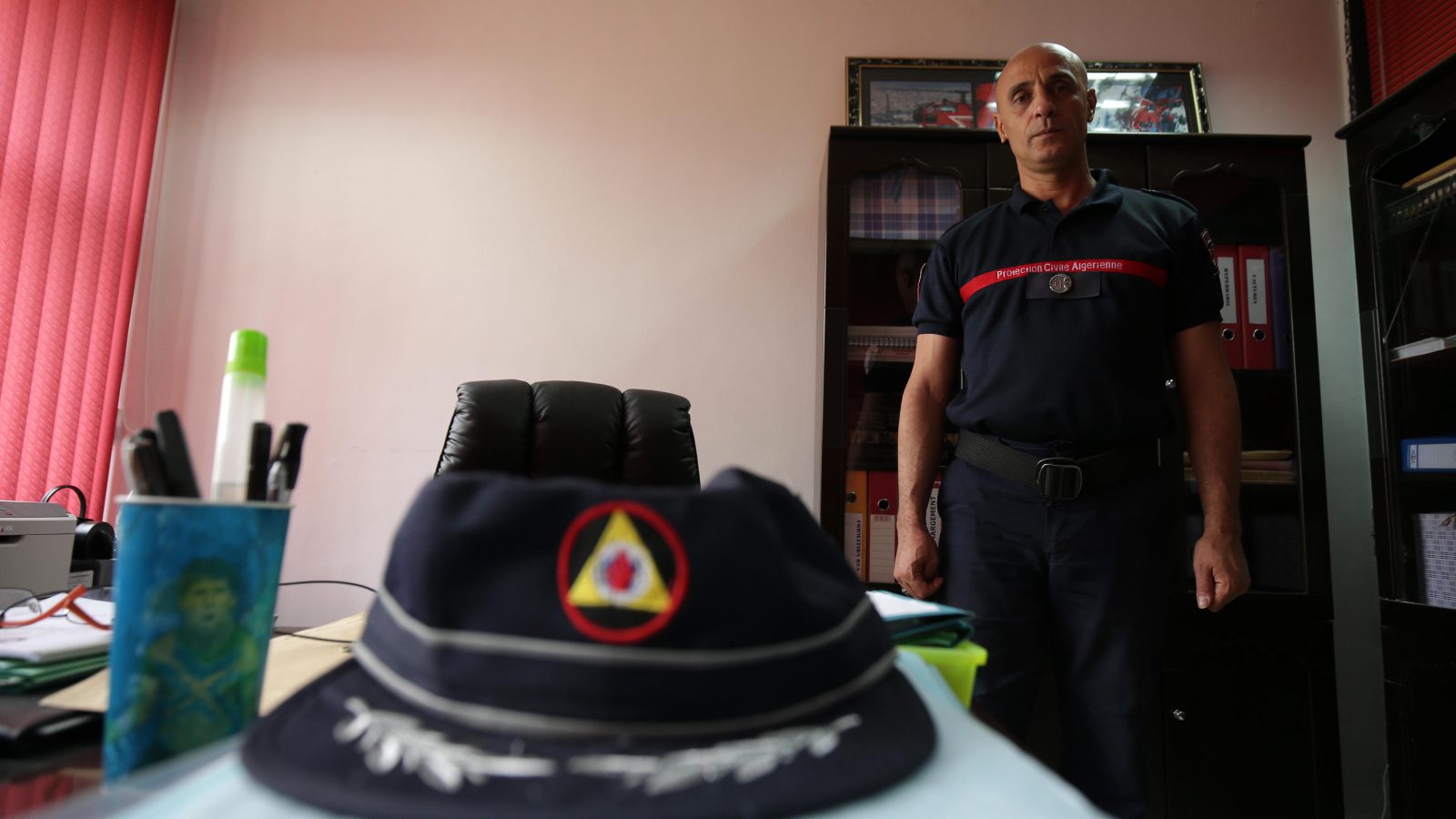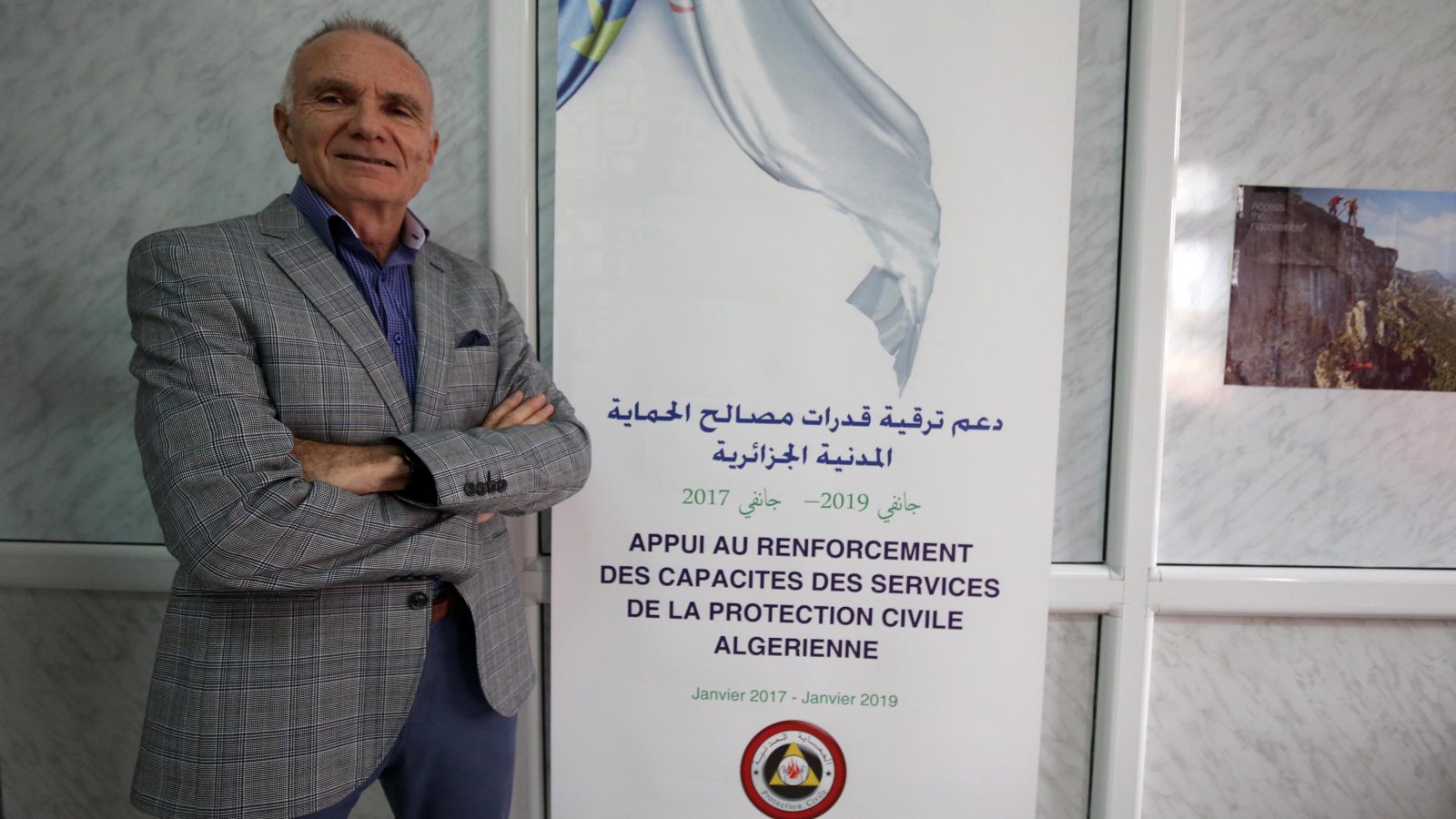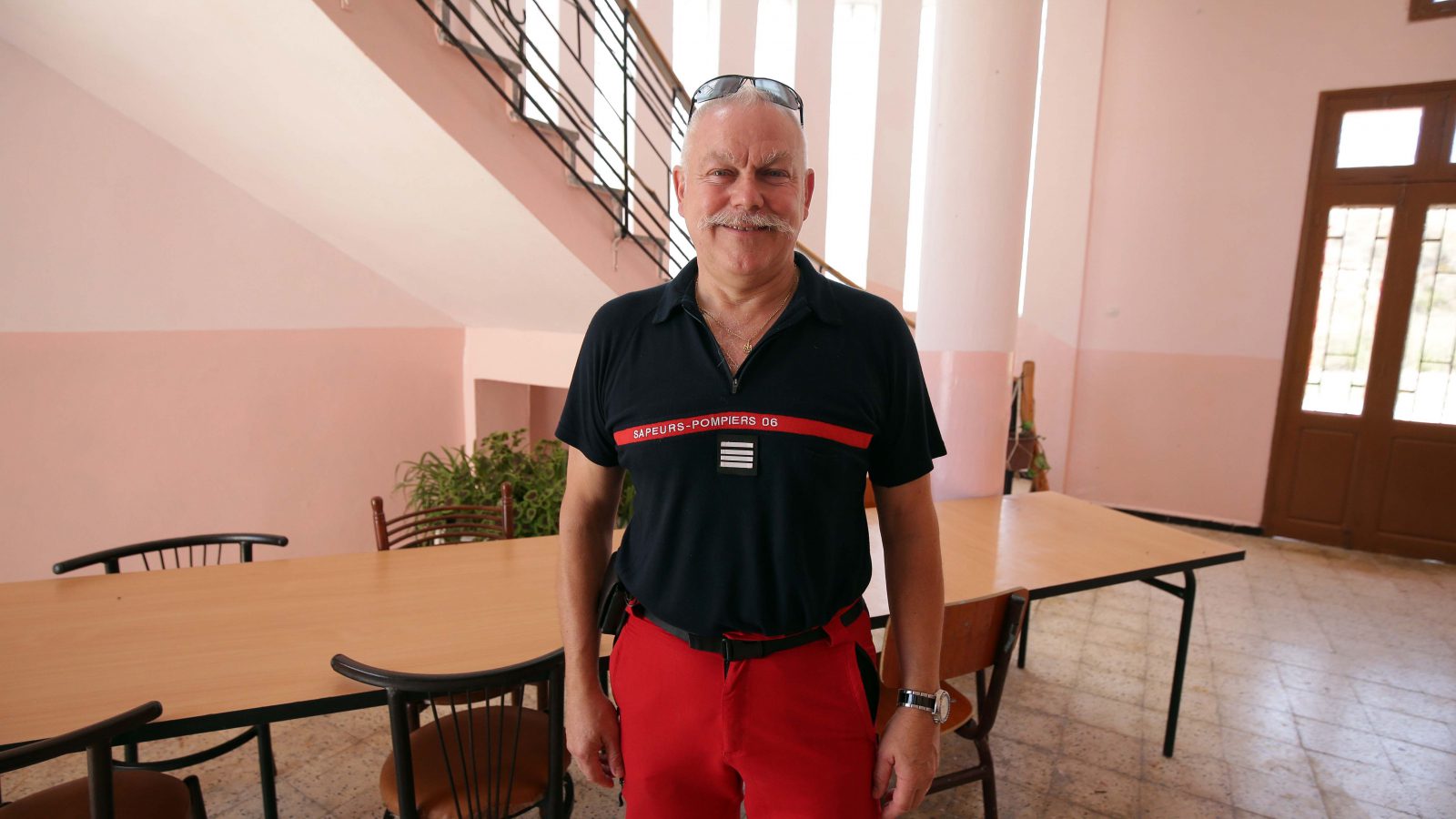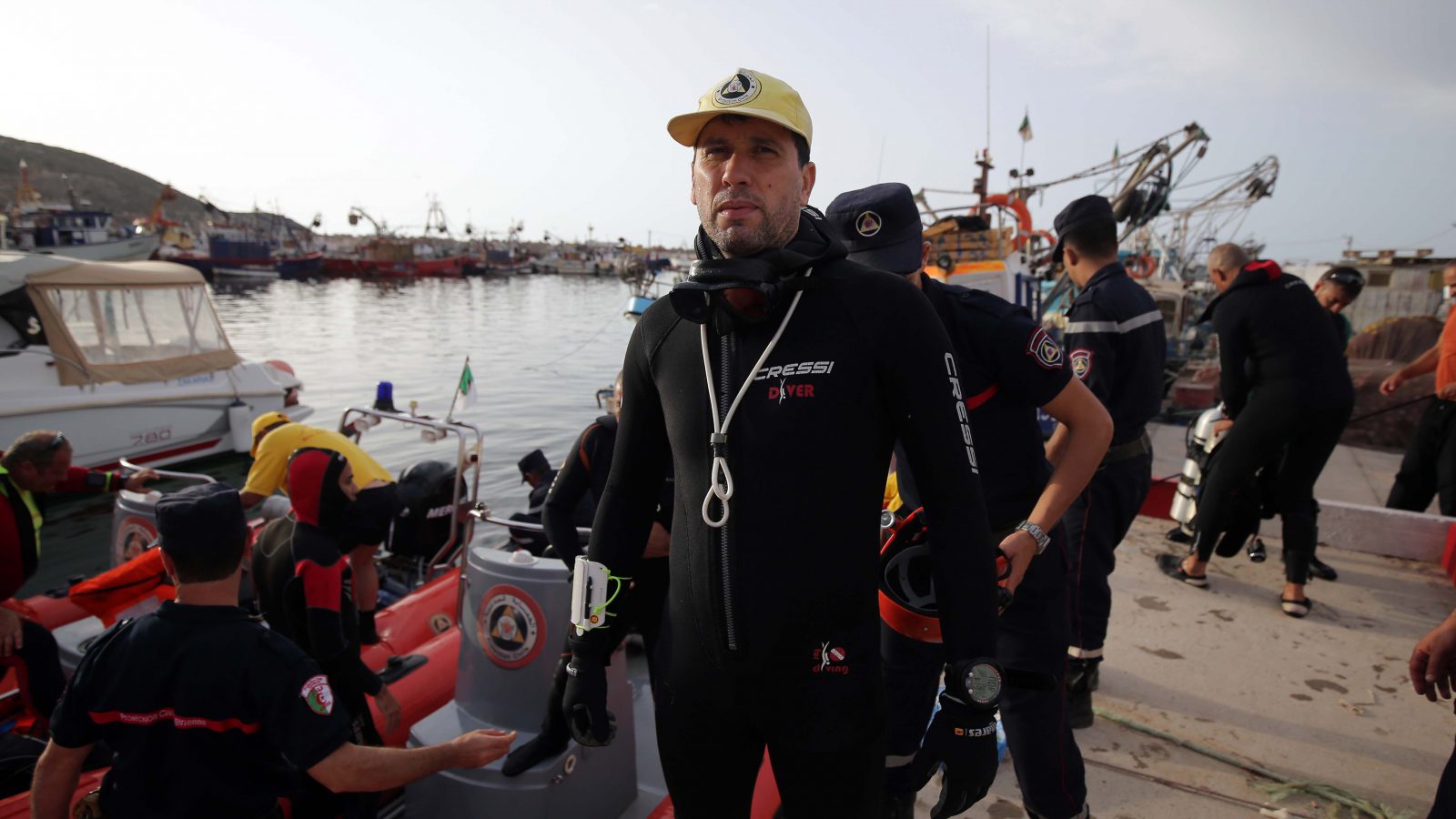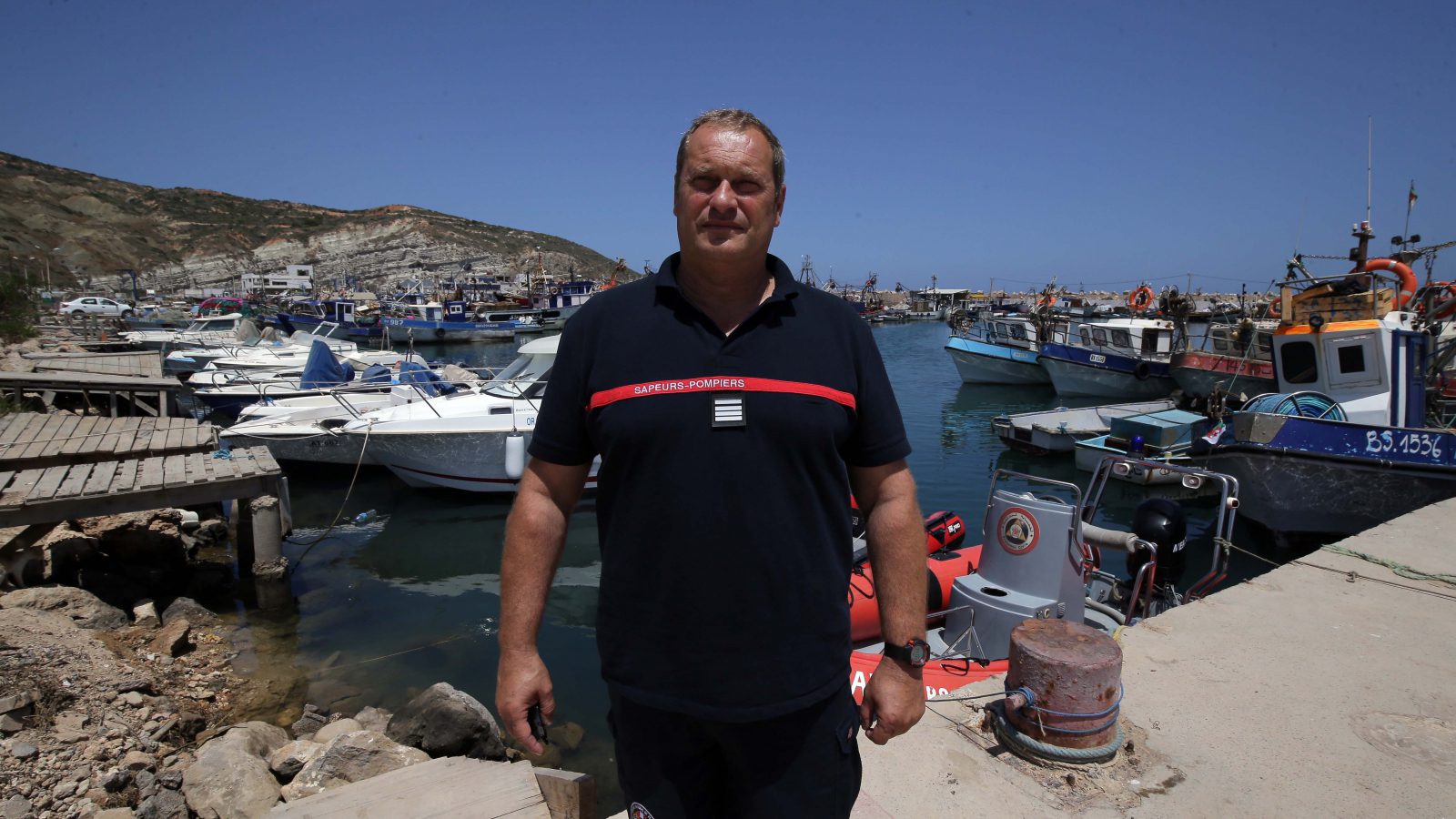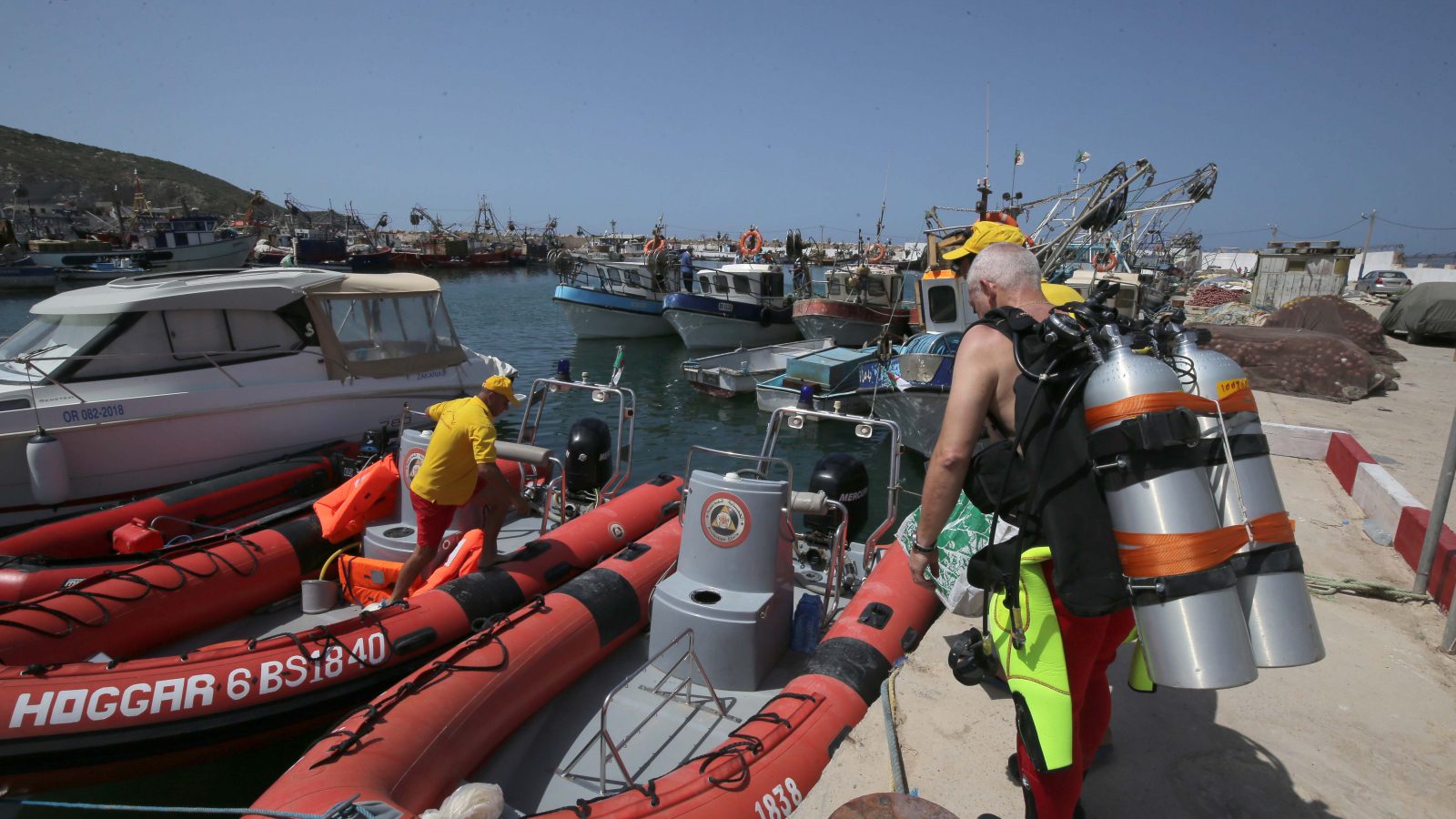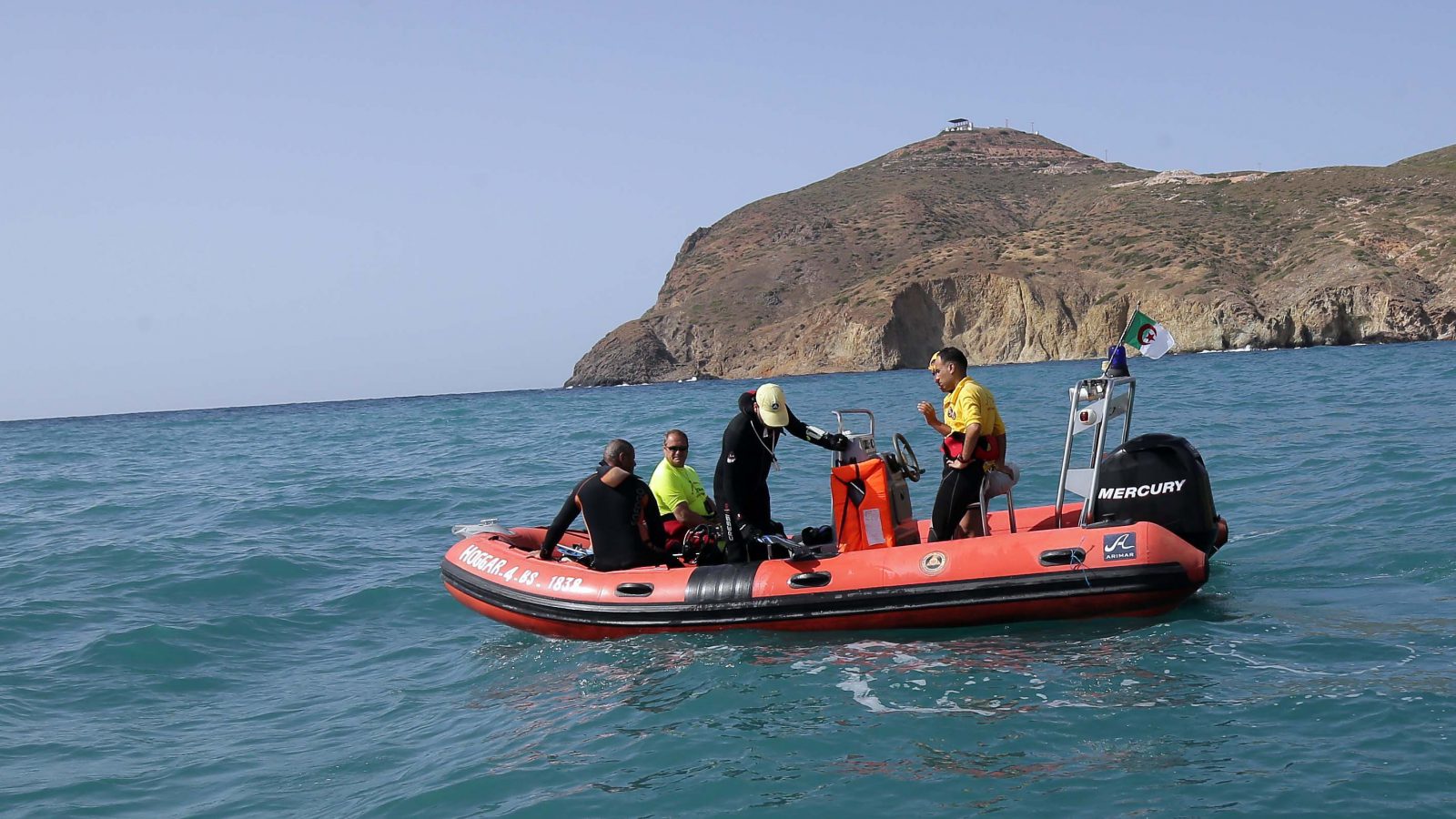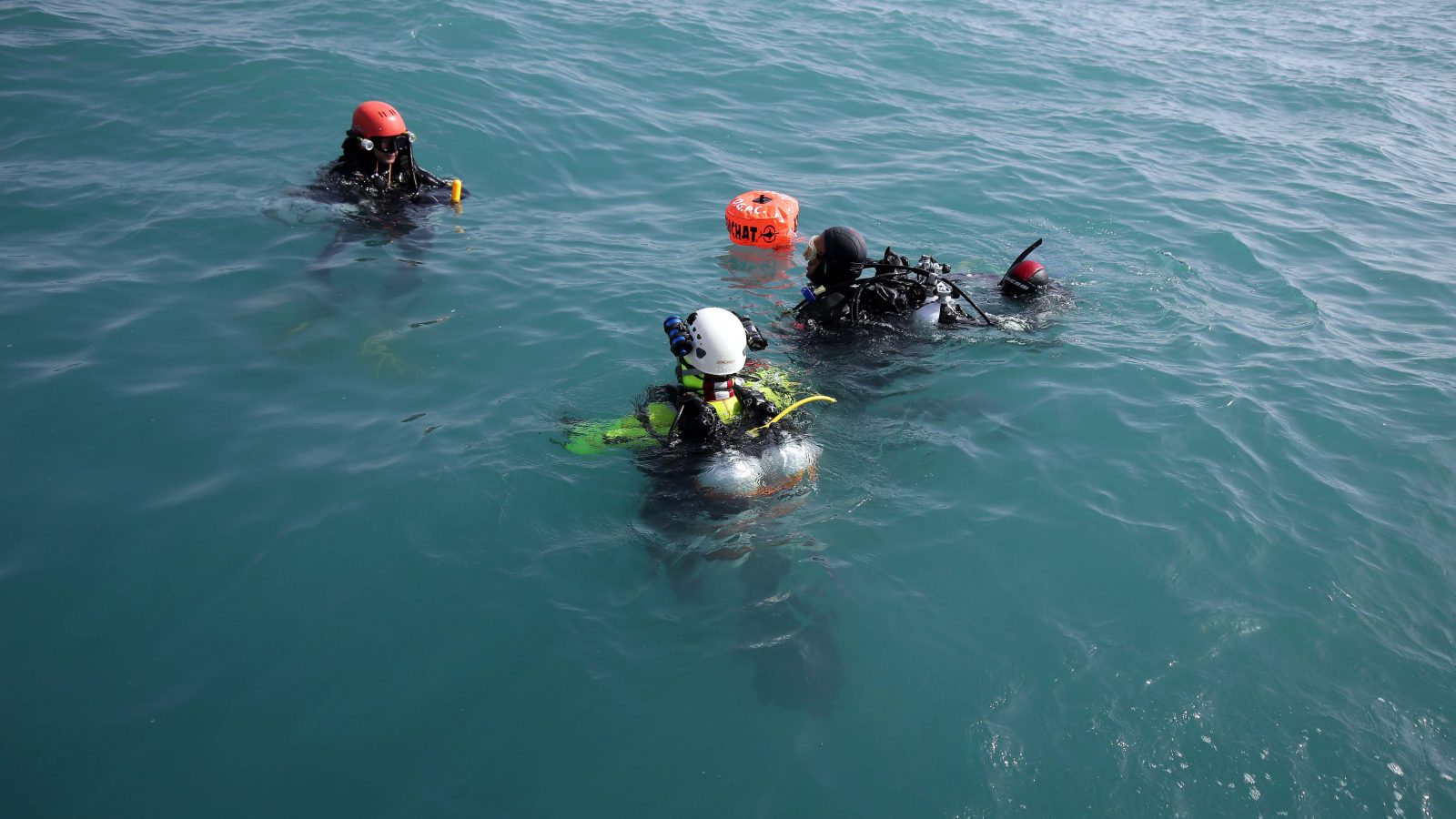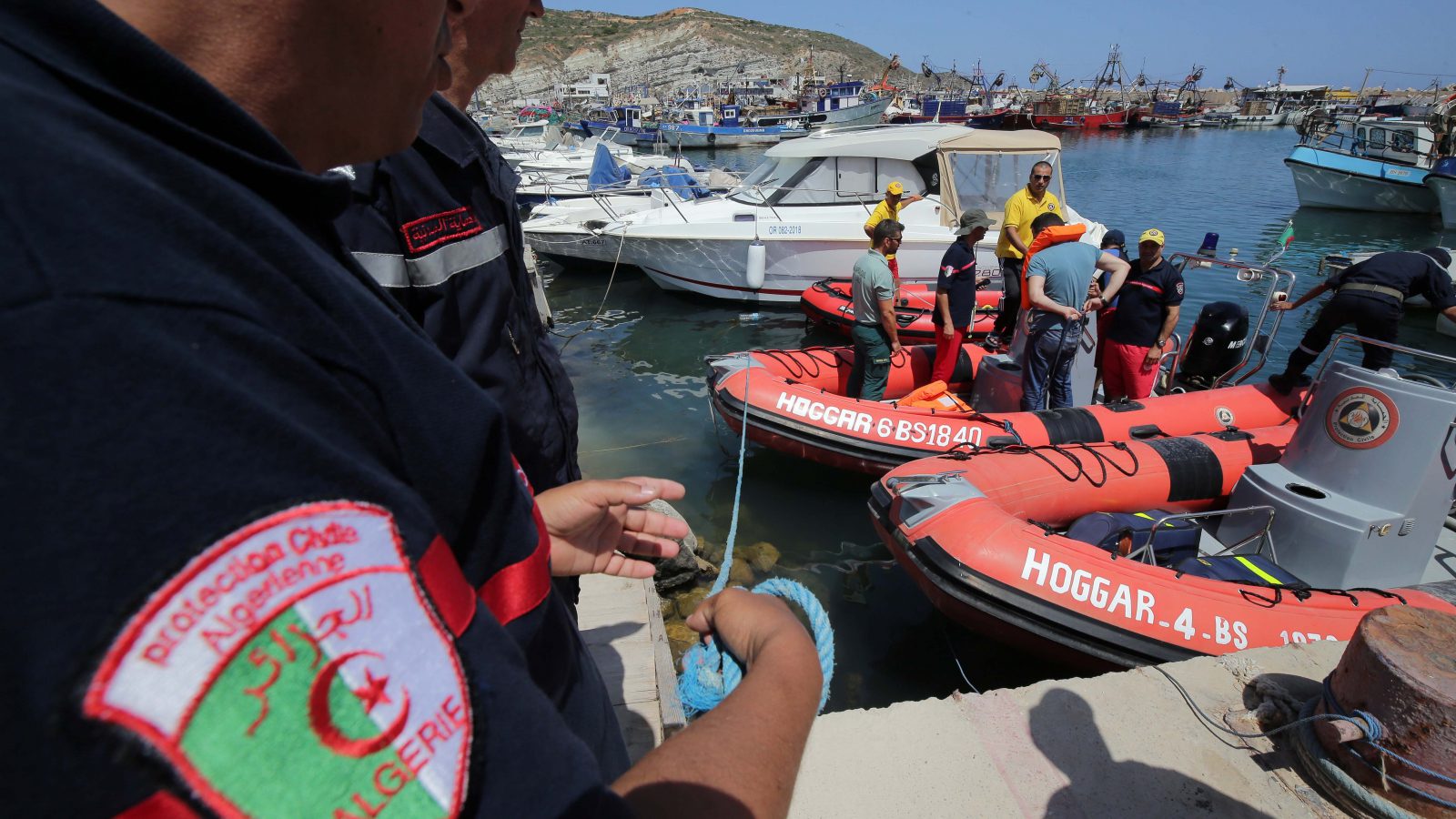INSTITUTIONS TWINNED TO ENHANCE ALGERIAN CIVIL DEFENCE PROGRAMME
The deep-sea diving school
Algeria, France and Spain are implementing the twinning of institutions as part of the ‘Algerian Civil Defence Enhancement’ programme. Launched in 2017, for a period of two years, this twinning received a budget of 1.5 million euros from the Development Programme on the signing of the Association Agreement (P3A) between Algeria and the EU. The expected results of this twinning are improved risk-prevention, strengthened operational capacity of the Civil Defence teams, improved skills and cohesion of the teams by means of suitable training as well as strengthening logistical expertise, taking into account environmental aspects during disaster reduction. Among its other aims, this project will lay the groundwork for the future National Centre for Civil Defence Diving.
Monday 2nd July 2018, Bouzedjar, a small fishing port in the region of Aïn Témouchent (500 km west of Algiers). The Civil Defence unit for this town became the operational centre for an unprecedented mission: to identify sites to train future elite divers. Three European instructors and six expert Algerian divers are involved in this activity as part of the Algerian Civil Defence Enhancement programme, financed by the EU.
At the start of a scorching July, Bouzedjar hosted the first Algerian divers specialised in diving in underwater caves. These officers have been asked to become the instructors of the future National Centre for Civil Defence Diving.
The rule of thirds
The unit’s entrance hall has been turned into a briefing room. At the table, Lieutenant Hocine Fenane issues instructions and explains the procedure for a ‘reconnaissance’ dive. The aim is to explore the wreck of a British naval ship that sank during the Second World War. The commanders of the French Civil Defence Jean-Jacques Grenaud and Joël Auclair, as well as the commander of the Spanish Civil Guard Victor Martin, all follow the Algerian officer’s explanations closely. For the three European instructors, the conduct of the briefing is an important learning exercise. It will be vital in organising a rescue mission.
“Our mission is to descend to the level of the wreck for a reconnaissance operation, and to confirm whether the site could be used for future training of diving students. For this dive, we will be split into three teams with three divers in each. We always work by the rule of thirds in order to use less oxygen than we need on a return mission, as a safety measure,” Lieutenant Fenane explains.
Despite high sea swells, the mission was carried out without difficulty. However, against their expectations, the shipwreck cannot be used as a training site. Commander Jean-Jacques Grenaud (who is the national liaison officer for aquatic and hyperbaric activities for Civil Security and the director of the National Centre for Water Rescue of the French Civil Defence) makes a quick assessment of the dive. “The ship is too damaged, it is impossible to enter and exit through the gangways. A ‘penetration dive’ (another name for a dive where divers cannot directly reach the surface) won’t be possible on this site for training future divers,” he explains. However, other training centres for special missions have been identified in west Algeria during this activity, notably in Oran and Tlemcen for expeditions in the underwater caves.
In the shadow of Tham Luang
Commander Grenaud has worked for about fifteen years on the execution of the training programmes with his Algerian counterparts. “The Algerian Civil Defence has embarked upon an ambitious staff training development plan. The aim is to create a National Diving Centre which will be based at Tipasa (75 km west of Algiers) and which will be responsible for training suitable professionals to lead rescue operations in different types of environments. Algeria is one of the countries in the Mediterranean and on the African continent that has become aware of the importance of setting up units of highly skilled divers. Unfortunately this goes beyond simply rescuing, because in the case of a catastrophe, these professionals will also have to recover victims’ bodies. On a cultural and ritual level this is essential to allow families to grieve,” emphasises Commander Grenaud.
Coincidentally, at the same time as these future training centres were being planned and set up, a dramatic incident also unfolded in Thailand, more than 10,000 kilometres away. Thirteen children trapped for two weeks in the Tham Luang cave and their rescue by a team of divers specialised in cave-diving came as irrefutable evidence to support the wise choice made by the Algerian Civil Defence.
“What happened in Thailand was an exception, because of its scale. But with the growth of tourism and interest in caves, we must be ready to respond to any emergency situation,” adds Lieutenant Hocine Fenane.
Force 9
Formerly a data management student, Hocine Fenane left university in 1992 to join the ranks of the Civil Defence. “My country suffered terribly because of terrorism, and I felt that I had to do something.” A child of the Bad Djedid neighbourhood, atop the mythical Algiers Casbah citadel, he headed straight to a training unit after graduating from the military Ecole nationale in Bordj el Bahri.
It was almost by chance that the young officer discovered deep sea diving, during an internship in 1998. “I had found exactly what I wanted to do! But I quickly understood that I would need to persevere and take many training courses because diving has a lot of different specialisations. So I joined the Algerian Federation for Diving to be certified as an instructor, and then a series of qualifications to be able to dive deeper and deeper.”
Lieutenant Hocine wasted no time in putting his new knowledge into practice in the field. This began with the dreadful floods in Bab el Oued in November 2001 that killed 700 people. “The lay of the land meant that certain lower parts of the neighbourhoods were flooded for several weeks. We dived to look for victims’ bodies. It was the month of Ramadan; all of Algeria was in mourning. It was a very difficult time,” he recalls.
Hocine successfully completed several other advanced courses, notably in France at the National Institute of Professional Diving (Institut national de plongée professionnelle – INPP) in Marseille. As national liaison officer for the Algerian Civil Defence, he holds the status of 3rd degree Technical and Instructional Advisor: the highest rank in Algeria.
Lieutenant Fenane has mastered every facet of his profession: intervention, leadership and training. “Actually, the Civil Defence has always had expert divers in its ranks. Our generation is simply their worthy successor. I think our skills are recognised internationally.”
But for him, the real challenge will be to pass on all his experience to future divers.
Specialised centres
Commander Habi Karim, responsible for special missions, emphasises the importance of the twinning for the Algerian Civil Defence Enhancement programme, particularly in its creation of training centres for specialised missions.
“Our divers’ training started several years ago thanks to two programmes to strengthen our experts’ skills, lead by the French Civil Defence (prioritised solidarity funds). The twinning with French and Spanish institutions, financed by the European Union, allows us to lay the groundwork for the future National Diving Centre. The same goes for the National Centre for ‘GRIMP’ (intervention in dangerous places) Training, which will be established in Tikdja, in the Djurdjura mountain range. We intend for these two centres to become reference institutions for the whole region.”
The establishment of these two centres will allow Algeria to train suitable professionals to tackle a wide range of dangers.
Colonel Pierre Launay, resident twinning advisor (CRJ), shares this view. “This is an ambitious programme launched by the Algerian Civil Defence, and partnered by France and Spain thanks to EU financing. Other than the training for special missions, the twinning includes 23 other initiatives that mobilised 140 European experts over the two years of its implementation.” Among these feature a comparative study of safety regulation texts in Algeria and the EU, drafting of an Algerian national reference for provisional emergency measures, a study on improvement of medical logistics in crisis situations and introduction of the European method, as well as an assessment guide for international humanitarian aid needs.
One of the high points of the twinning was EU-AL SEISMEEX 2018, an international simulation exercise from 14th to 18th April 2018, which brought together France, Spain, Poland, Italy, Portugal, Tunisia and Algeria. 1000 men (700 Algerians and 300 of other nationalities) tackled the aftermath of a magnitude 7.0 earthquake that hit the mountainous region of Bouira (100 km east of Algiers). The disaster situation included all the types of intervention on seven different sites.
According to the French officer, “This large-scale exercise allowed us to test how well we can work together and co-operate with all parties involved during a powerful earthquake.”
P3A’s input
Colonel Launey, as a resident twinning advisor, with his assistant Captain Rachda Zikara from the Algerian Civil Defence, is responsible for all administrative and logistical aspects of the twinning. “Its implementation and follow-up require constant action from our little team. It’s an exciting job that demands ongoing commitment as well as perfect knowledge of the specialisms of our field,” he says. Without the Programme Management Unit, nothing would be possible: it co-ordinates the work of all parties, particularly the Development Programme on the signing of the Association Agreement (P3A) between Algeria and the European Union (entered into force in 2005).
The €1.5 million fund for the twinning comes from the P3A. Managed by the Algerian Ministry of Commerce, “the aim of this Programme is to support the Algerian administration and all institutions that help implement the Association Agreement, providing expertise, technical assistance and the necessary tools for the merging of the administrations.”
At the EU Delegation to Algeria, this twinning is held up as a model implementation. “We work with parties who demonstrate professionalism and precision. There is true co-operation between peers and between employees of the constituent bodies,” claims Marco Sioli, responsible for co-operation programmes at the Delegation. He believes this type of initiative has the merit of strengthening the partnership between Algeria and the European Union, and turning it into a win-win situation.
On Thursday 19th July, the Steering Committee met to draw up a progress report of the twinning six months before its end. “The results are particularly positive and the work schedule has been adhered to,” announced Colonel Sahraoui Ammari, explaining with a smile that the budgetary savings had been achieved.
The Spanish also received a glowing report, as they emphasised sharing the experiences of Spanish experts with the Algerian Civil Defence. “One of the points we will discuss today is the possibility of extending the twinning,” remarks Silvia Negro Alousque. A request that would be accepted by P3A because of the availability of funds. A decision that would allow especially the elite divers of the Algerian Civil Defence to strengthen their abilities in order to actively participate in the training of future extreme rescuers.



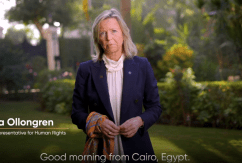








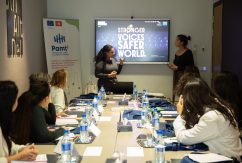
















 Syria
Syria 